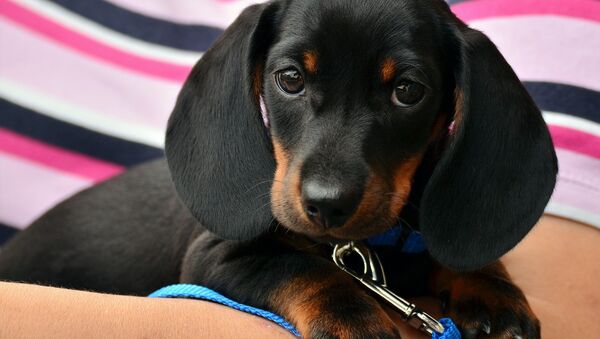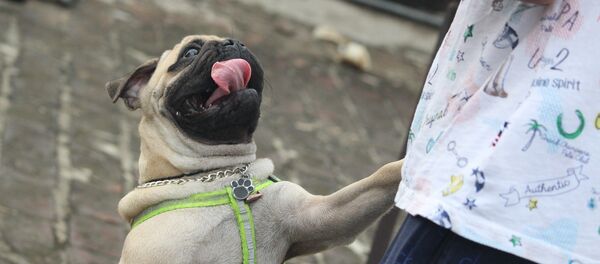United Airlines suspended new bookings for their PetSafe system earlier this week, which their website calls, "Our specially designed program for transporting animals that are not eligible to travel in the aircraft cabin… Members of our PetSafe team are trained professionals who love animals and are dedicated to ensuring that all pets receive the best care throughout their entire journey."
Diverted Doggos
Other recent problems have seen pets delivered to the wrong families after mix-ups at airports, while Irgo the German Shepherd was accidentally diverted to Japan from Oregon, when he was supposed to go to Kansas City. Meanwhile, a flight from Newark to St Louis was diverted to Akron, Ohio after staff realised they had one furry passenger too many.
UPDATE: Irgo the German Shepherd is supposed to land in Wichita tonight. Due to a United Airlines mix-up, this dog was sent to Japan.https://t.co/pjsc8Jg5Kr
— Kaitlyn Alanis (@KaitlynAlanis) March 15, 2018
In all three cases the diverted dogs were reunited with their owners and are now home and safe. Others were not so lucky, and of the 24 animals who died in the last year on major US carriers, 18 were on United Airlines flights. This has led to United conducting a full review of their PetSafe service, expected to be completed by the start of May, though when the service will become available again is not clear.
READ MORE: 'Canine Eugenics': Dog Show Invaded by PETA Activists
Guam Pets Stranded
As a result, US military families based in Guam who are returning to the US have no way of taking their pets with them, leaving open the possibility of the animals being stranded on the island. Around 7,000 US troops are stationed at the two US bases in the territory, meaning dozens are rotating back to the US at any given time. With Delta cancelling their service to Guam earlier this year, United are the only airline offering flights from Guam to the US, making it difficult for pet owners to take their beloved animals home with them.
Shoutout to @united stranding military family pets on Guam. Way to go, assholes.
— Samantha (@superbadsam) March 21, 2018
The US Air Mobility Command does move pets on military aircraft on a space-available basis but this is not available at Andersen Air Force Base, leaving commercial flights as the only option for those in Guam. One Navy spouse, whose family — including an 85-pound dog — is scheduled to move in June, told Military.com, "We are on PCS orders and have no way to get our dog off Guam… It's not like other stations where multiple airlines fly out, like Japan or Germany. Because Guam is so small, United is the only airline that flies in and out of the US."
Puppies and Public Relations
This is especially embarrassing for the US military due to their prominent use of animals — especially Military Working Dogs — in recent promotional operations. This has included supporting TV shows on the Animal Planet channel alongside series including Extraordinary Dogs, Dog First Aid and episodes of chat shows featuring pro-military stories about dogs. Likewise the CIA produced a video tour of their headquarters presented by Bradley, one of the Agency's bomb-sniffing dogs.
READ MORE: Dog Bound for Kansas on United Airlines Flight Ends Up in Japan (PHOTOS)
Ironically, given the current situation in Guam, the Pentagon's favourite puppy-themed PR event is to have a dog reuniting with a returning service member. The military have helped to produce segments with this theme for Anderson Cooper, The Ellen Show and Queen Latifah in recent years.
One such Queen Latifah segment featured a military intelligence officer who was returning home after a tour of service as part of Operation Enduring Freedom. According to reports from the Army's Hollywood office her dog has been in the care of a volunteer family, so "Queen Latifah staged the "dog reunion" with and her dog ‘Emma' during the national broadcast."
While the problem with getting pets off Guam makes for a tricky situation for the Pentagon, it is not all bad news. Documents acquired by PETA under the Freedom of Information Act confirm that the US Coast Guard have put an end to the practice of wounding and injuring animals in order to provide medical training. The controversial training often involved shooting or stabbing pigs, goats and other animals before they are treated by medical trainees. The Coast Guard are now replacing this with simulator training, to the delight of animal lovers everywhere.




